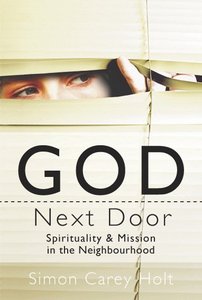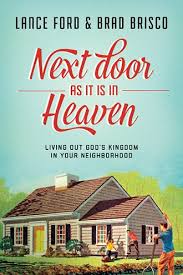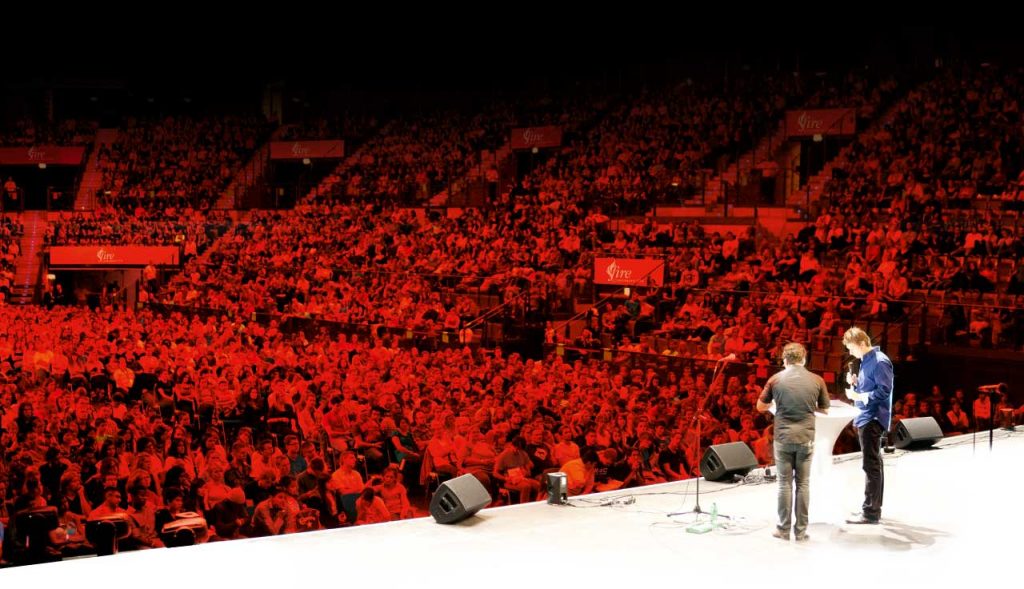
One of the challenges of inspiring people towards a missional lifestyle and a missional church is that many either find it too hard to translate ideas into action, or they are too busy to cultivate new practices. (Another less flattering option is that we are too self focused to see other people.)
At the core of a missional identity is the idea of being sent – of our identity being tied up with God’s sending impulse. It starts here, but then it needs fleshing out.
I like the story of Jesus with Zacchaeus in Luke 19 as a picture of how we can live with a missionary focus. And in that story we can derive some simple core practices that could form the basis for a missional lifestyle.
I’ll be speaking on this on Sunday, but for now here’s a summary of 7 things I see:
1. Jesus meets Zacchaeus in the street – in the flow of his everyday life. The story doesn’t take place in the synagogue but in the town, followed by Z’s home. If we see mission as what happens when people come to church then we miss the idea of being sent and we will also wait a really long time for anything to happen.
Practice – engagement – intentionally spend time immersed in the community as opposed to spending much of our free time with church people.
2. Jesus is aware of Z – he is tuned in enough to the spirit to notice him in a tree checking him out. Its easy to not see people – to view them as ‘extras’ in our own story and therefore somewhat invisible or irelevant. Frederick Beuchner says ‘the first step in loving people is to see them’.
Practice – awareness – stop on occasions thru the day and look around. Ask God if there is anyone he wants you to pay attention to. Look back at the end of the day and see where God was at work.
3. Jesus has time for him – he makes himself available to have lunch with Z. He sees the interruption / distraction as part of God’s work in the world and rolls with it. The key is that he is not so flat out that he is unable to create space.
Practice – availability – assess your life pace and whether it allows for interruptions and spontaneous connections. Each evening reflect on the day that has been and see where you accepted invitations to be with people or where you missed the cue. Choose to eliminate some things from your life to live at a more welcoming pace.
4. Jesus is himself – in that he is authentic and at ease in himself – not needing to impress Z or ‘win him over’. In a recent comment Scott pointed me to some research done by Lynne Taylor who was trying to understand what is happening in the lives of people who become Christians. Her conclusion was that authenticity was the key element in people finding faith – both a desire for an authentic life and an experience of authentic faith
Practice – authenticity – reflect on the way you conduct yourself around those who don’t have faith. To what extent are you ‘yourself’ and to what extent are you acting a role?
5. Jesus accepts Z as he is – he knows who he is, the way he is perceived in society but he is happy to be with him and eat lunch with him.
Practice – acceptance – spend time with people who make you uncomfortable or who clearly do not share your values. Bring someone into your life on a regular basis who challenges your prejudices.
6. Jesus is vulnerable and willing to put himself at risk – he isn’t controlled by the societal norms that prohibit him from spending time with people like Z. He knows there will be criticism but he is willing to take the heat.
Practice – vulnerability – don’t be afraid to spend time with people or go to places that may evoke criticism from other Christians.
7. Jesus was purposeful in his relationship – he finishes the time by declaring “Today salvation has come to this house, because this man, too, is a son of Abraham. For the Son of Man came to seek and to save the lost.” Jesus knew what he was doing and wasn’t shy about it. You don’t need to be offensive or brash to be purposeful. Jesus seems to get it right.
Practice – look at who God has brought into your life, pray for them, and seek every opportunity to love, bless, serve and speak of Jesus with them.
I’m hoping that as we put a practical edge to it we may be able to move people into a more natural missional lifestyle. And I imagine that will happen as those practices become automated and embedded in our everyday life.
There’s no rocket science here – just a willingness to listen to God and be a bit uncomfortable from time to time.
















